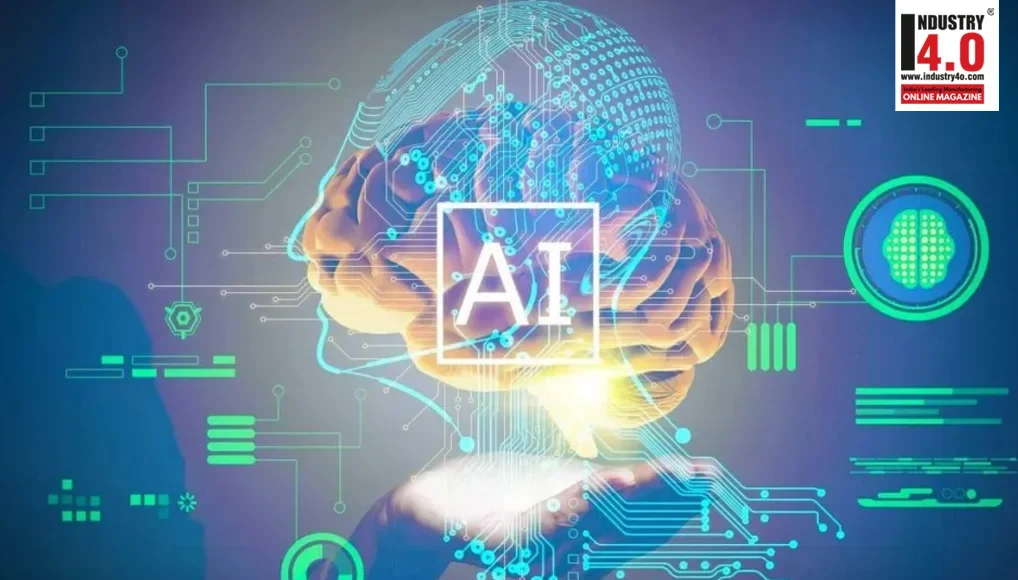Leveraging AI/ML Solutions to Overcome Key Challenges in CCAR Stress Testing
Introduction
This article examines the evolution of regulatory stress testing, the expectations of internal and external stakeholders, the key challenges facing financial institutions, and the potential of AI/ML solutions to reshape stress testing processes. Regulatory stress testing has become a cornerstone of financial stability since the 2008–2009 financial crisis, which exposed significant weaknesses in banks’ capital management. Before the crisis, many banks focused on stock repurchases and dividends, overlooking the potential effects of prolonged economic downturns on their capital adequacy and operational resilience.
In 2009, the Federal Reserve responded by introducing the Supervisory Capital Assessment Program (SCAP) for large domestic banks to assess whether they had sufficient capital to withstand adverse economic conditions while maintaining lending capacity. SCAP required banks with capital shortfalls to raise funds promptly, signalling a new era of rigorous capital oversight. By 2011, this program evolved into the Comprehensive Capital Analysis and Review (CCAR), a more comprehensive framework that mandates annual capital plans and approvals for capital actions to ensure that banks maintain resilience under economic stress.
Over the past decade, CCAR has adapted to the complexities of an increasingly data-rich, technologically advanced, and geopolitically dynamic environment. However, financial institutions still face challenges in meeting these growing demands, including data quality issues, operational inefficiencies, and the need for enhanced model precision. This article explores how AI/ML solutions can help institutions address these challenges, streamline processes, and adapt to evolving regulatory standards, ultimately supporting financial stability and operational resilience.
Internal Stakeholder’s Expectations
Stress testing is a key core capability for internal and external stakeholders. Banks very closely monitor about Market volatility and the impacts, including those from elevated oil and commodity prices or supply chain disruption through stress testing and portfolio analysis. Banks are vigilant to review their exposures and limits across portfolios.
▸Clear and efficient collaboration across risk, finance, and regulatory functions to support streamlined reporting.
▸Clear, comprehensive risk assessments, with senior management expecting results that highlight potential vulnerabilities in the firm’s portfolio.
▸Rigorous auditing processes to confirm the effectiveness and robustness of models, assumptions, and processes used in stress testing.
▸Thorough documentation of CCAR methodologies, assumptions, and results to ensure compliance and reproducibility.
▸High accuracy in modeling techniques, with validation processes that ensure reliable stress-testing outputs.
External Stakeholder’s Expectations-
Evolving regulatory, economic, and risk management pressures always keeps bankers busy to ensure the tune with regulators are set to understand the expectations. The key expectations are –
▸Strict adherence to regulatory requirements, with comprehensive documentation and transparency in methodologies and assumptions used.
▸Compliance with capital buffer requirements, demonstrating sufficient capital for shareholder distributions (dividends, share repurchases) while maintaining resilience.
▸High-quality data inputs and robust model governance processes to meet regulatory scrutiny.
▸Insights into potential impacts on financial performance under stress scenarios, to understand risks to future earnings.
▸Evidence of strong financial health, showing that the bank’s rating can remain stable even under stress scenarios.
▸Confidence in the integrity of data and the credibility of models used for stress testing.
▸Knowledge that the bank has taken steps to ensure protection against major economic shifts, safeguarding their deposits and financial services.
Key Challenges

Application of AI/ML Solution
AI/ML can address the full scope of CCAR-related challenges which was mentioned above through enhanced data quality management, workflow automation, compliance monitoring, and precision modeling, leading to a more robust, transparent, and efficient stress testing framework.
▸ AI-Powered Regulatory Compliance Monitoring and Reporting
✔ Natural Language Processing (NLP): NLP models can parse regulatory texts to extract and interpret relevant requirements, cross-referencing them with internal policies and procedures. This reduces the risk of non-compliance by ensuring all guidelines are identified and adhered to.
✔ Regulatory Change Detection: Machine learning models can monitor updates in regulatory frameworks, providing real-time notifications and impact analysis for compliance teams to adjust CCAR frameworks as required.
✔ Automated Reporting Tools: AI-driven reporting tools can automatically generate regulatory reports based on pre-set templates, ensuring consistent and timely submissions. This addresses the complexity of compliance and enhances transparency for regulators.
▸ AI-Driven Data Quality and Integration Platform
✔ Data Cleansing with Machine Learning: Machine learning algorithms can identify, correct, or flag data inconsistencies, missing values, and outliers, significantly enhancing the accuracy of data used in stress testing.
✔ Data Integration Using ETL (Extract, Transform, Load) Solutions: AI-enhanced ETL tools automate data aggregation from various sources, standardizing and preparing data for use in CCAR models. These tools also adapt to evolving data sources, reducing the manual workload.
✔ Data Validation Models: AI algorithms can perform continuous data validation checks to ensure data consistency and integrity across the CCAR reporting pipeline, catching quality issues before they affect results.
▸ End-to-End Workflow Automation with Robotic Process Automation (RPA) and AI
✔ Automated Data Pipeline and Process Orchestration: RPA combined with machine learning can streamline workflows, automating repetitive tasks such as data collection, preprocessing, and report generation.
✔ Governance with AI-Enhanced Monitoring: AI tools can enhance governance by monitoring and logging every step in the CCAR process. Machine learning algorithms can detect anomalies or deviations from standard procedures, sending alerts to compliance teams for review.
✔ AI-Enabled Model Risk Management: Implement AI-driven frameworks to monitor and manage model risks, providing alerts on model drift or changes in input data quality, ensuring adherence to governance policies.
▸ Intelligent Documentation and Audit Trail Generation
✔ Document Generation and Management: NLP-powered tools can assist in drafting documentation by converting complex analyses and model outputs into structured and regulator-ready reports, which is particularly useful for submission purposes.
✔ Automated Audit Trail Creation: Machine learning models can automatically log data lineage, model assumptions, and version histories, creating an accessible audit trail for review. This supports transparency and ease of compliance during audits.
✔ Intelligent Document Review: AI-powered document review tools can ensure that all submission requirements are met, highlighting any missing elements or inconsistencies across multiple CCAR documents.
▸ Advanced AI/ML Models and Precision Tuning Techniques
✔ Explainable AI Models (XAI): XAI techniques (like SHAP and LIME) provide interpretability, helping regulators and internal stakeholders understand the factors influencing model predictions. This can improve trust and precision in model outputs.
✔ Self-Improving Models Using Reinforcement Learning: Reinforcement learning models adapt over time to improve their accuracy in forecasting and scenario testing, enhancing precision with each new data cycle.
✔ Ensemble Modeling for Enhanced Accuracy: Using ensemble methods (combining multiple models like gradient boosting, random forests, and neural networks) allows firms to address imprecision by capturing different aspects of economic scenarios. Ensemble models offer more reliable predictions under stress scenarios.
Conclusion
leveraging AI and machine learning solutions offers a transformative approach to addressing the complex challenges of CCAR stress testing. By enhancing data quality, automating workflows, strengthening compliance monitoring, and increasing model precision, AI/ML empowers financial institutions to streamline their CCAR processes while ensuring greater accuracy and transparency. These technologies not only reduce manual effort and operational risk but also provide a proactive framework for meeting regulatory expectations and adapting to evolving economic conditions. As the demands of stress testing continue to grow, AI/ML tools stand as invaluable assets in enabling institutions to achieve both resilience and regulatory compliance. Embracing these advanced solutions positions banks to better navigate uncertainties, manage risk, and contribute to the stability of the broader financial system.
About the Author:

Consulting Partner – APAC, Risk & Compliance, BFSI Strategic Initiative
Tata Consultancy Services (TCS)
Mr. Abhaya Kant Srivastava is a seasoned Risk Analytics senior leader in banking and financial sector with over 18 years of experience.
Mr. Abhaya Kant Srivastava is currently a Consulting Partner – APAC, Strategic Head Model Risk and Analytics with Tata Consultancy Services (TCS), where he leads the strategic initiative to acquire new projects in the area of risk and compliance analytics and advise clients to deploy advanced statistical and mathematical modelling.
Mr. Abhaya Kant Srivastava, prior to Tata Consultancy Services (TCS), headed a big size team for India Risk Analytics and Data Services Practice at Northern Trust Corporation.
Before Northern Trust Corporation, Mr. Abhaya Kant Srivastava worked at KPMG Global Services, Genpact, EXL and startups like Essex Lake Group and Cognilytics Consulting to lead risk and analytics.
Mr. Abhaya Kant Srivastava is a B.Sc. (Honours) in Statistics – Gold Medallist from Institute of Science – Banaras Hindu University, M.Sc. in Statistics from Indian Institute of Technology, Kanpur and currently doing executive Ph.D. in Statistics/Machine Learning from Indian Institute of Management, Lucknow.
Mr. Abhaya Kant Srivastava, also has a certification in “Artificial Intelligence for Senior Leaders ” from Indian Institute of Management, Bangalore.
Mr. Abhaya Kant Srivastava is Accorded with the following Honors & Awards :
https://www.linkedin.com/in/ab
Mr. Abhaya Kant Srivastava is Bestowed with the following Licences & Certifications :
https://www.linkedin.com/in/ab
Mr. Abhaya Kant Srivastava has Led the following Projects :
https://www.linkedin.com/in/ab
Mr. Abhaya Kant Srivastava can be contacted :












